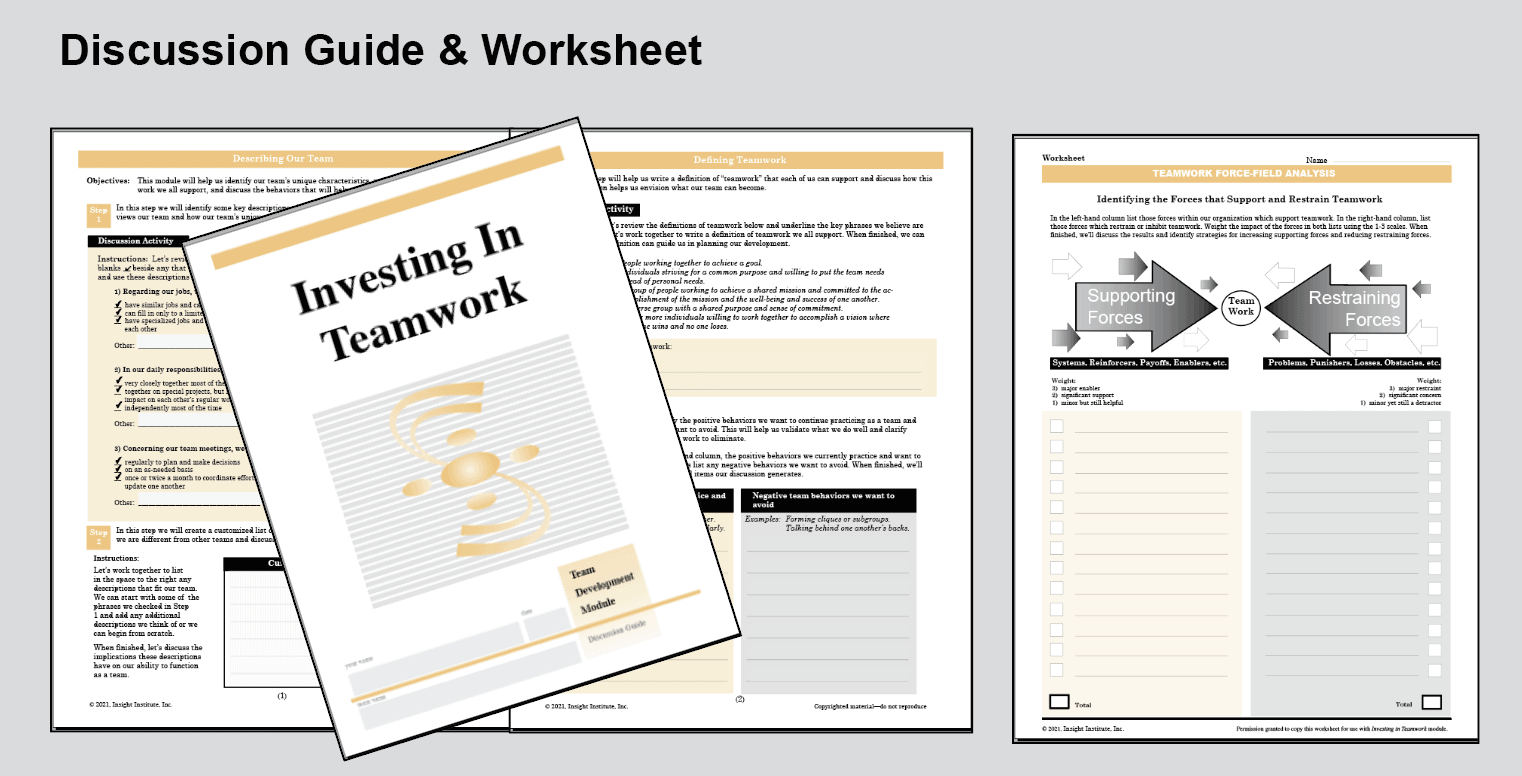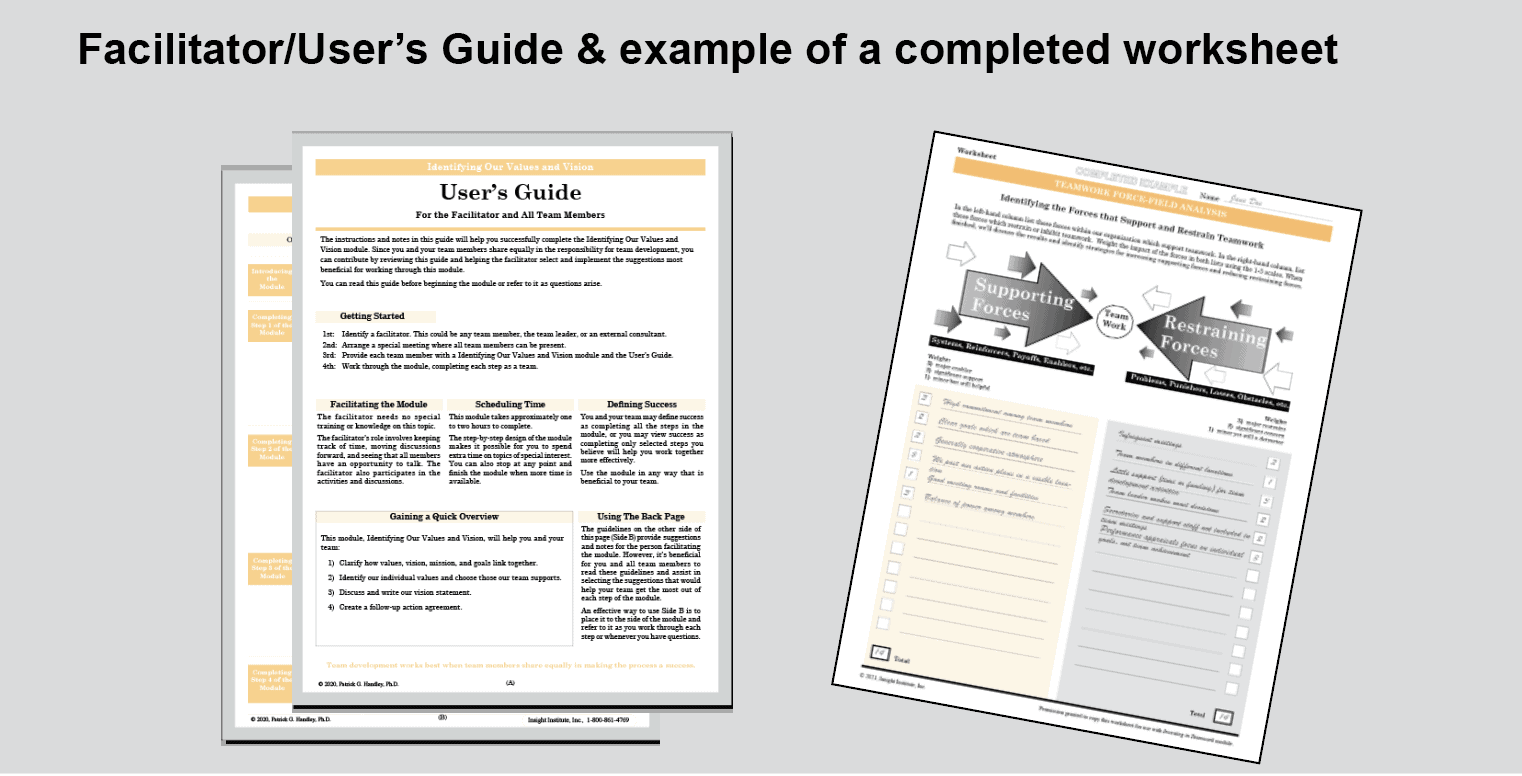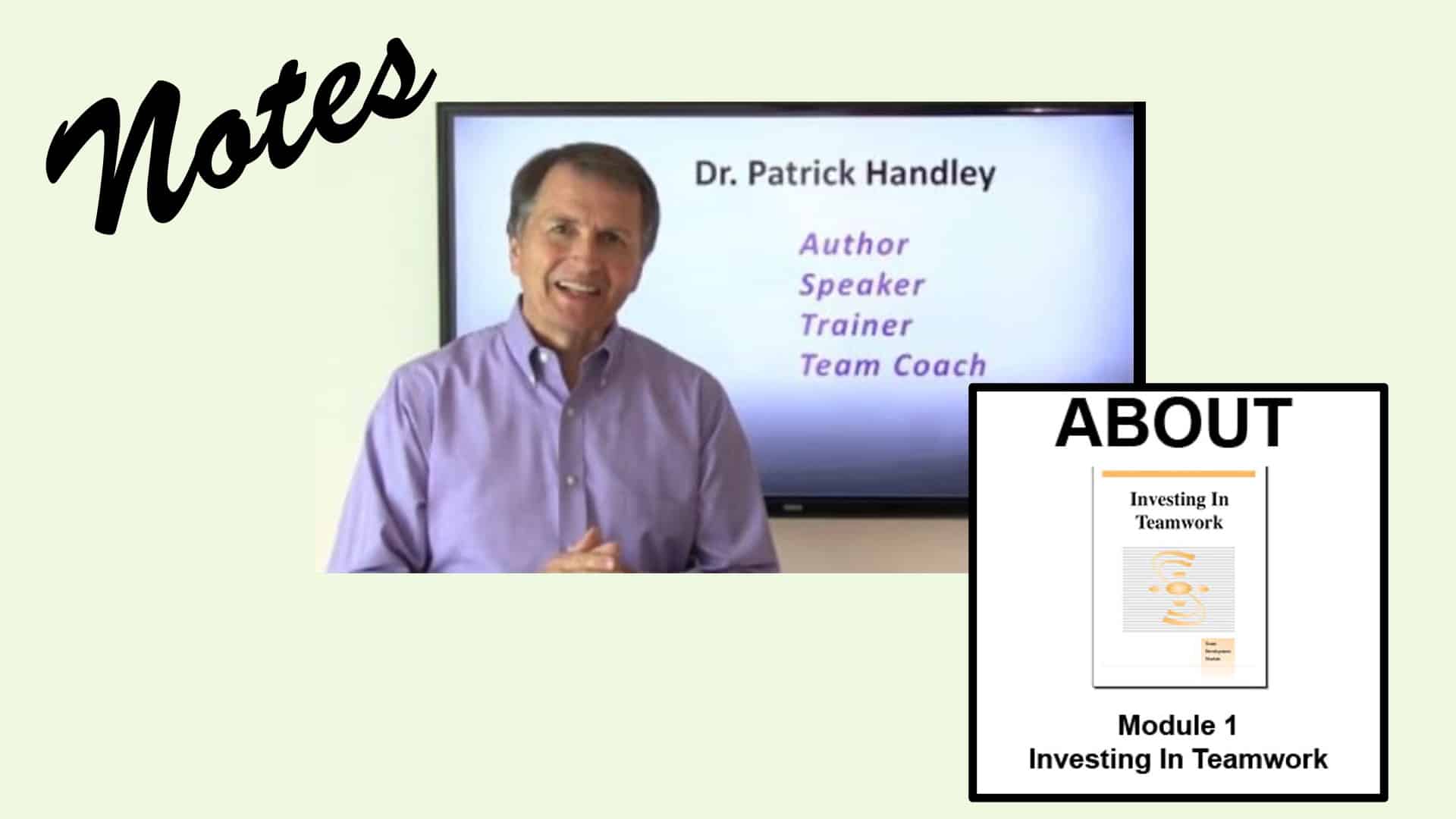OBJECTIVES
To help your team identify the benefits of teamwork, agree on team characteristics you want to develop, and commit to building a winning team.
ABOUT
This Module helps members personally commit to investing the effort it takes to create a winning, high-performance team. The Module takes users through a process of describing their unique team, writing a definition of teamwork that all members support, clarifying what members want to avoid, identifying what they desire to become, and finally committing to personal behaviors that would improve teamwork.
The supporting worksheet helps team members analyze the forces within their organization that support teamwork and those that restrain it. Finally, members identify ways they can build upon supporting forces and work around restraining ones.
WHEN TO USE
Use this Module when:
- revitalizing established teams that may have slowly dissolved into task forces and project completion groups
- launching new teams and the objective is to increase “buy in” to teamwork
- incorporating new members into an existing team with long established members
- working to shift the culture and language of a traditional work group to that of a high-performance team
This module, Investing in Teamwork, has three components.
1) The Discussion Guide and Worksheet
The discussion guide contains step-by-step interactive fields, check boxes, and open fill-in spaces. As the team works through it together, they share their responses to the importance of teamwork, some good and bad experiences they have had in the past, how they would define exceptional teamwork and what they are willing to commit to doing to improve teamwork. This helps them hear each other’s experiences and perspectives and bond together as a team.
The supporting worksheet helps them list the forces that support teamwork in your organization and those forces that restrain it. Discussing their lists helps them commit to a realistic plan for developing into a team.

2) Facilitator/User’s Guide
This easy-to-use guide helps the leader or facilitator direct the team through the steps of the discussion guide.

NOTES FROM DR. PATRICK HANDLEY

I frequently use this module early in the process when working with a team for two reasons. First, I want to know if they see themselves as a team or if they believe they are basically a task-focused work group and not really a team.
In the latter case, I can expect resistance and get prepared for that, and hopefully change their mind set. Secondly, I want to pull out those personal commitments which each member makes in and share them openly the record. This is because I’m going to rely on those commitments when the going gets tough and conflict arises in other topics or Modules.
This module helps members discuss the benefits of teamwork and decide if they want to make the extra effort to become a high functioning team. Usually they do, and this helps create the commitment to be open and honest in not only the completion of the steps in this module, but the other Modules they may choose to work through.
Members are often skeptical of each other’s levels of commitment to team development, particularly if there has been tension, misunderstandings, or conflict in the past. This module helps everyone get back to the basics and reflect on how much more rewarding their work together can be if they invest in teamwork and when they reach this point of agreement, it increases the willingness to engage in working through additional Modules as their responsibility to each other.
